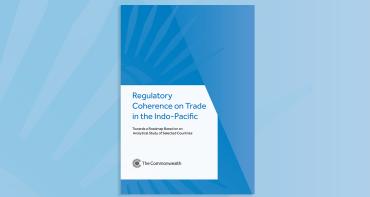Pamella McLaren, the Advisor and Head of the Debt Management of the Commonwealth Meridian Secretariat, has challenged 35 debt managers of the sub-region to utilize the use of the “Commonwealth Meridian” system for financial debt data collection, reporting, and monitoring within member countries.

The Commonwealth Meridian is a web-based tool that is already being used by several member countries to proactively manage their debt.
McLaren said that the system demonstrates how to use Commonwealth Meridian to record, manage and report all actions taken to reorganize a country’s debt, in a way that supports long-term debt sustainability.
She made the remarks on August 29, at the official opening of a week-long regional training on using Commonwealth Meridian for fiscal debt data compilation, reporting, and monitoring organized by the Commonwealth Secretariat (COMSEC) in partnership with the West African Institute for Financial and Economic Management (WAIFEM) in Monrovia.
McLaren told the participants that the regional workshop is timely as countries all over the world grapple with elevated debt levels in the wake of the ongoing Russia-Ukraine war and the aftermath of the COVID-19 pandemic.
"I am hopeful that over time you will use the system to its full capacity to help you in managing your country's debt portfolio," she said.
Currently, the capacity of the debt managers from the Central Banks and finance ministries in Nigeria, Ghana, Sierra Leone, The Gambia, Liberia, and other countries are being built in the Commonwealth Meridian.
McLaren said the secretariat is happy to be collaborating to train debt managers on concepts related to debt data compilation and how to use Commonwealth Meridian to support them in debt data compilation, reporting, and monitoring.
She stated that the Commonwealth Meridian was developed to replace CS-DRMS since its launch in June 2019.
"The system is massive, and you will not become proficient in using the system in 4 days. Some of you have realized as you use the system that it has a lot of functionalities and I am hopeful that over time you will use the system to its full capacity to help you in managing your country's debt portfolio," she said.
According to her, the Secretariat is very proud of the system.
“It couples significant advances in technology with rapidly changing products and practices in public debt management to provide a web-based state-of-the-art software solution for the front, middle, and back office requirements,” she explained.
However, McLaren said that before the development of Commonwealth Meridian they did a lot of consultation with borrowers and lenders to get debt managers reporting requirements.
"I would like to close by highlighting the use of the system to promote public debt transparency, which is at the forefront of just about every conversation in the global dialogue of public debt management. And as you know debt reporting is a key element of debt transparency. I mention this because a robust debt management system is crucial in promoting public debt transparency," she told the participants.
She added that since the launch of the system, they have made enhancements in response to user needs.
"We have designed and developed a comprehensive solution that promotes effective and proactive public debt management which includes several functions. One of those functions is reporting to the World Bank and the IMF," she said.
McLaren also said that regarding reporting under the General Data Dissemination System (GDDS), which addresses the quality of data, and data dissemination, and the Quarterly External Debt Statistics (QEDS) SDDS, the Secretariat can confidently say that Commonwealth Meridian checks the box in supporting countries in those reporting requirements reporting under.
According to her, the system is configurable around the delivery to key stakeholders i.e. Ministry of Finance, Debt Management Office, Central Bank, various Funding Agencies, and Project Implementing Agencies thereby streamlining the information flow between the various entities; among others.
"This will ensure that real-time data is always available even to remote offices and will integrate with external systems to provide straight-through processing and accurate data to stakeholders," she concluded.
This article was originally published in the Liberian Observer authored by David A. Yates.



